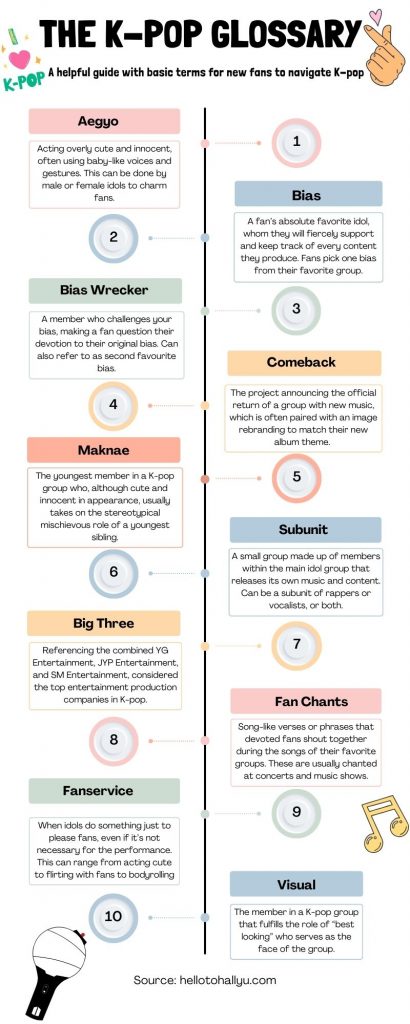With K-pop’s popularity and fanbase growing in the UK, how are fans forming intense emotional bonds with idols through social media?
Giggling, blushing and feeling her heart race…. This was Isla in her early years of being a K-pop fan, whenever her favourite idol appears on social media. A simple Instagram post with a casual caption was enough to make her heart skip a beat. For her, it felt like a personal message, shared only between them. Like many other fans, she was captivated by the charm of her idol, convinced that there is a special connection, a bond that goes beyond the digital screen.
“Every time he goes live, it feels like he is just talking to me,” says Isla. “I know he doesn’t know me, but it feels personal, like we are friends.”
Welcome to the world of K-pop, where the boundary between idol and fan blurs, creating a realm of intense emotional investment. Isla isn’t alone in this, when she thinks that the relationship with her favourite idol feels real. It is personal, intimate and emotionally charged. Yet, this sense of closeness is a carefully crafted illusion.
This is a space where the traditional pop music of star power meets an amplified engagement strategy, turning admirers into what some may argue, obsessed devotees. K-pop’s ability to blur the line between reality and fantasy through social media interactions is not just a matter of entertainment, but a movement with profound implications for how we understand connection, intimacy, and influence in the digital age.
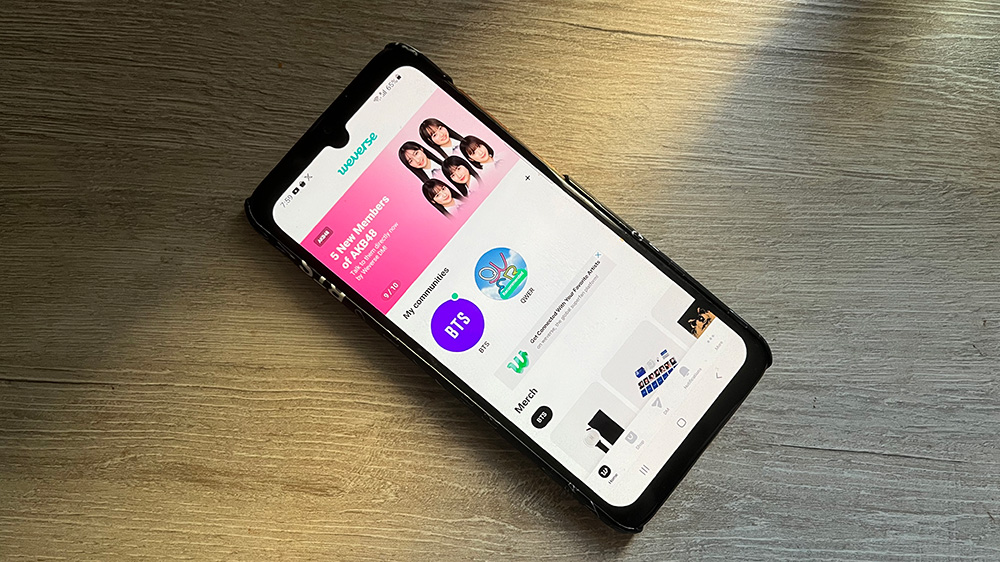
K-pop’s rise in the UK has been nothing short of phenomenal. According to Twitter’s 2019 statistics, K-pop was the most tweeted about genre in the UK, highlighting its growing popularity. By 2020, conversations around K-pop intensified, with fans actively engaging online, discussing their favourite idols, anticipating music releases and participating in fan organised events. The pandemic further accelerated its growth as people sought escapism and connection through K-pop.
This surge in popularity is not just a passing trend. K-pop fandoms, known for their passionate and organised nature, have established a solid presence across social media platforms. Fans band together to create trending hashtags, organise online events and even coordinate mass purchases to boost their favourite groups on the charts. These activities highlight how K-pop fans in the UK are not just passive consumers, but active participants in a genre they love.
The secret behind K-pop’s deep connection with its fans lies in its masterful use of social media. According to social media marketing expert Jacob Song, social media is a crucial tool in K-pop’s marketing strategy.
Platforms like Instagram, Twitter and specialised apps such as Weverse and Bubble allow idols to share moments of their daily lives, creating an illusion of intimacy. These interactions, from casual posts to live broadcasts, make fans feel valued and connected.
“Through interactions like this, fans feel like they are part of the idols’ lives. It is a powerful way to maintain loyalty and engagement,” Mr. Song said.
Specific campaigns and interactions have gone viral, amplifying these connections. For instance, BTS’s use of Twitter to directly communicate with their fans, known as ARMY, has set new standards for fan-idol interaction. Their real-time engagement makes fans feel seen and heard.
According to the BBC, K-pop artists and their management agencies facilitate a “false intimacy” that makes fans feel they have a special, emotional connection with their stars, known as idols. By leveraging the power of social media, these agencies have perfected the art of making each fan feel seen.
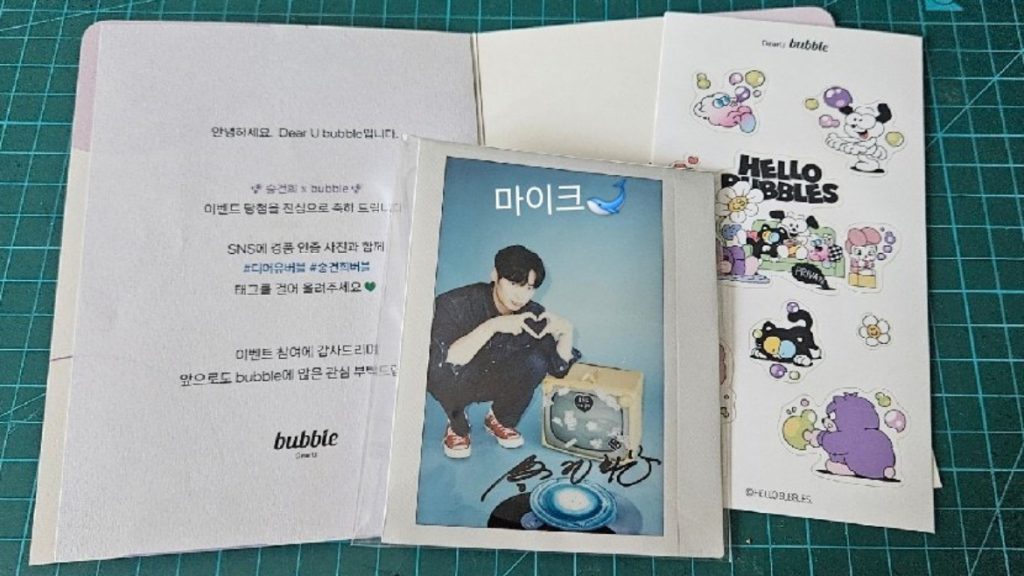
“Sometimes I think idols like Jungkook from BTS feed our delusion. During live broadcasts, he acts like we are face-timing, and it feels really intimate and we enjoy that feeling,” says Isla.
“K-pop agencies use data analytics to understand their audience. They know when fans are most active, what type of content gets the most engagement and even which idols have the strongest appeal in different markets. They tailor posts in a way that shows a more ‘human’ side of the idols,” Mr. Song says.
Dr. Lucy Bennett, Lecturer in Media Audiences at Cardiff University, who has extensively studied media audiences, explains that these connections are a form of parasocial interaction, a psychological phenomenon where fans develop a sense of one-sided intimacy and friendship with media figures. She says that these connections between fans and the idols make fans feel they truly know their idols through the content shared online.
“K-Pop can cultivate a para-social connection, a sense of knowing, primarily through social media updates, where fans feel they are getting glimpses into the private life of the idol,” Dr. Bennett explains. “It can also occur when fans feel directly spoken to, which connects with their sense of self.”
Parasocial relationships have been around since the early days of television, but K-pop has taken them to new heights. By leveraging real-time interactions through live broadcasts and personalised messages, K-pop idols create an environment where fans feel deeply connected to them. This kind of engagement fosters intense loyalty, making fans feel like they are an integral part of their idols’ lives.
Social media not only builds these parasocial relationships but also drives fanship, which is the psychological attachment an individual feels to their favourite idol. These platforms allow idols to share everyday moments, creating a sense of intimacy and familiarity. Fans eagerly await these updates, feeling as though they are gaining personal insights into their idols’ lives.
“I feel there is an invisible thread linking the musician and the fan, forever tied together, even if they drift through the decades and the level of intensity wane. There is always this thread anchoring them to each other, and this is often developed through these feelings of knowing, at the heart of parasocial connections,” Dr. Bennett said.
At the core of fandom is an emotional tie, something that transforms a casual listener into a devoted fan. “The emotional tie is what transforms someone from an interested or casual listener into something deeply felt. And when this emotional tie takes hold, when the feels get you, often there is no looking back,” she says.
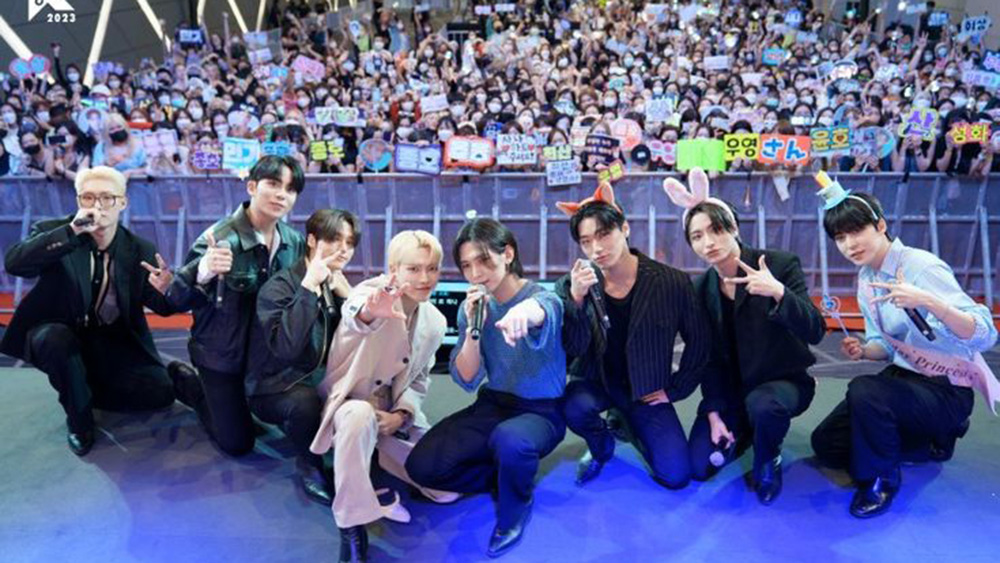
This deep emotional connection is often built through music that resonates with the listener’s own values and experiences. K-pop, with its range of themes from love and happiness to struggle and perseverance, often strikes a chord with fans. “I think the connections between fan and artist can be particularly potent within music, as musicians and their songs can reflect our values or experiences or conjure a sense of who we are but also who we want to be, and this then can foster a feeling of closeness with the artist, as well as looking up to them,” Dr. Bennett said.
However, it is not just what idols say or how they engage on social media that creates this connection- it is also about how they look. The visual appeal of K-pop idols play a significant role in attracting and maintaining fan attention. From perfectly styled hair and perfect makeup, to stylish outfits, K-pop idols present an image of perfection that is “hard to resist”, according to fans.
“Idols are portrayed as the epitome of beauty and style. It attracts fans, and also keeps them invested. The idea that these idols are not only talented but also ‘perfect’ in every way makes the connection even stronger,” said Mr. Song.
It makes the experience more enjoyable when you break out of the delusional phase and make use of the relationship mindfully.
Isla, 22, Student from London
While many fans are aware that the intimacy is manufactured, they willingly engage in the fantasy. The feelings, though based on an illusion, are real. For some, this can lead to confusion and emotional distress when boundaries between fantasy and reality become too blurred.
Amelia, a 22-year-old fan from Bristol, recalls a time when her feelings for her favourite idol, Taeyong from NCT, became overwhelming, where she was spending time on social media for the star’s updates. “It felt like he was a part of my life. But looking back, I realise that it was a form of escapism,” she said.
“I had a phase where I really believed that I was in love with Jungkook,” Isla said. “It was comforting to think that someone like him could care about me, but also frustrating because I knew it wasn’t real.”
Fans like Isla and Amelia reflect a growing awareness within the fandom of the need to set boundaries and approach their relationships with idols mindfully. For many, the joy of being a fan lies in the music, the sense of community, and the positive feelings that come from supporting their favourite groups.
“I have learned to enjoy my idols for what they are, performers. I still follow them and support them. It makes the experience more enjoyable when you break out of the delusional phase and make use of the relationship mindfully,” says Isla.
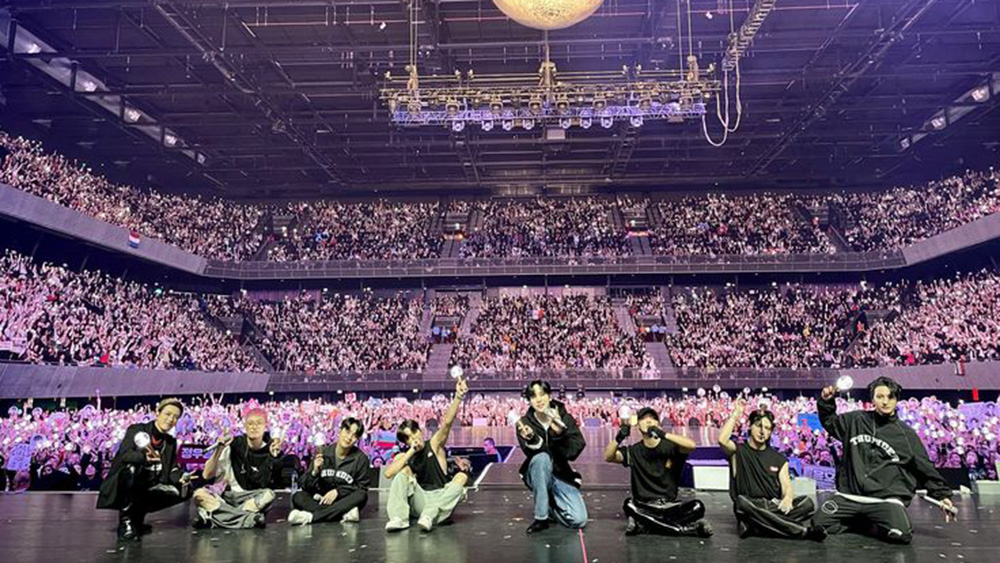
As K-pop continues to grow in popularity, understanding the dynamics of parasocial relationships and fanship is crucial. It highlights the power of media marketing in shaping perceptions and emotions. For fans, it is about finding a balance— appreciating the music and community while staying grounded in reality.
In a digital age where connections are often virtual, K-pop stands as a testament to the power of well-executed social media strategies. It shows how carefully crafted interaction can create powerful emotional bonds, turning fans into devoted followers and music into a global phenomenon.
Reflecting on her journey, Isla offers a final thought. “Loving K-pop has been a wild ride. It’s taught me a lot about myself, about what I need in relationships, and how to appreciate art without losing myself in it. I still get excited when I see my favourite idols, but now, I know how to keep it in perspective,” she said.
